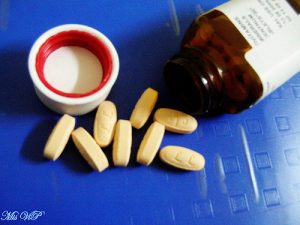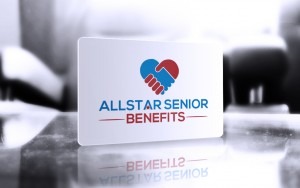What is Bipolar Disorder?
Is life/burial insurance available for people with bipolar disorder? Yes! Fortunately, there is a guaranteed whole life insurance policy available. Hello, I am Mitch Winstead with Allstar Senior Benefits. Call Today for your free quote with no obligations. Or toll-free number is 866-598-8170 or 910-538-4547. Our website is www.allstarseniorbenefits.com Our email is mitch@allstarseniorbenefits.com We have a Facebook page called Allstar Senior Benefits. we have been helping people for over 34 years. Life insurance bipolar disorder. In this article let us take a closer look at bipolar disorder. Is getting life insurance with a mental illness possible? Have you watched the movie Silver Linings Playbook? It has Robert DeNiro, Jennifer Lawrence and Bradley Cooper in it. It is a great movie about mental illness. I won’t tell you about the movie in case you have not seen it.
Bipolar disorder is a mental health disorder characterized by extreme highs and lows in mood and energy. While everyone experiences ups and downs, the severe shifts that happen in bipolar disorder can have a serious impact on a person’s life. More than 3.3 million American adults (1.7%) suffer from bipolar disorder in a given year.
Contrary to how it is sometimes used in conversation, a diagnosis of bipolar disorder does not mean a person is highly emotional but rather refers to someone who experiences extended periods of mood and energy that are excessively high and or/irritable to sad and hopeless, with periods of normal mood in between.
It typically begins in adolescence or early adulthood and continues throughout life. It is often not recognized as an illness and people who have it may suffer needlessly for years.
Bipolar disorder can be extremely distressing and disruptive for those who have this disease, their spouses, family members, friends, and employers. Although there is no known cure, bipolar disorder is treatable, and recovery is possible. Individuals with bipolar disorder can and do have successful relationships and meaningful jobs. The combination of medication, therapy, healthy lifestyle and support helps the vast majority of people return to productive, fulfilling lives.
“Bipolar disorder is treatable, and recovery is possible.”
What Causes Bipolar Disorder?
Although a specific genetic link to bipolar disorder has not been pinpointed, research shows that bipolar disorder tends to run in families.
People may inherit a tendency to develop the illness, which can then be triggered by environmental factors such as distressing life events.
Brain development, structure, and chemicals called neurotransmitters, which act as messengers between nerve cells, are also thought to play a role in the development of bipolar disorder.
What are the Symptoms of Bipolar Disorder?
Bipolar disorder is often difficult to recognize and diagnose. It causes a person to have a high level of energy, unrealistically expansive thoughts or ideas, and impulsive or reckless behavior. These symptoms may feel good to a person, which may lead to denial that there is a problem.
Another reason bipolar disorder is difficult to diagnose is that its symptoms may appear to be part of another illness or attributed to other problems such as substance abuse, poor school performance, or trouble in the workplace.
Symptoms of bipolar disorder fall into two categories: mania and depression.
ManiaThe symptoms of mania, which can last up to three months if untreated include: | DepressionAn episode of depression can come before or after a manic, hypomanic, or normal period of mood. Symptoms include: |
|
|
If you or someone you know is in crisis, call or visit your local emergency room or call 911.
What is the Difference Between Mania and Hypomania?
Mania is when a person has:
- at least 3 of the symptoms listed above for mania that last for at least one week, and
- serious impairment in work or school functioning or in usual social activities or relationships with others, or
- symptoms severe enough to require hospitalization to prevent a person from hurting their self or others, or
- psychotic features.
Hypomania is when a person has:
- at least 3 of the symptoms listed above for mania that last at least 4 days, and
- a change in their ability to function that is not typical of that person when they aren’t showing symptoms,
- changes in mood and ability to function that are noticeable by others,
- symptoms that are not severe enough to cause serious impairment in social or work/school functioning, or to necessitate hospitalization, and
- no psychotic features.
In summary, hypomania is a less severe and briefer form of mania.
Be sure to talk with an expert at Allstar Senior Benefits about your burial/life insurance options. I think most of know someone or know of someone with mental illness. Some of us suffer from anxiety/depression. Others with bipolar disorder. I think treatment programs are improving but still have not produced a cure. I know that mental health disorders can go into remission but not be cured currently. I am hopeful that one day soon along with every disease or condition that a cure is found.
Diagnoses and Other Terms Associated with Bipolar Disorder
Bipolar I Disorder: Bipolar I Disorder is given when a person has at least one episode of mania. While a person with Bipolar I might only experience manic episodes, it often includes episodes of depression and hypomania. Hypomania includes the same symptoms of mania but can be shorter in duration and less severe. They do not include symptoms of psychosis or require hospitalization.
Bipolar II Disorder: Bipolar II Disorder includes at least one major depressive episode and at least one hypomanic episode. Individuals with bipolar II also tend to have longer periods of depression than people with bipolar I.
Cyclothymic Disorder: Sometimes called cyclothymia, this disorder includes episodes of hypomania and depressive symptoms that occur on a fairly regular basis. While changes in mood are not as extreme as those associated with Bipolar I and Bipolar II Disorders, it can still cause serious problems in a person’s life and may later progress to symptoms of mania, hypomania, and depression.
Rapid Cycling: Rapid cycling is a term used when an individual experiences four or more episodes of hypomania, mania, or depression within a 12-month time period.
Mixed Episode: A mixed episode occurs when a person is experiencing symptoms of both depression and mania or hypomania at the same time. Individuals with bipolar disorders are at an increased risk for suicide, and this risk is thought to be especially high during mixed episodes.
What are the Treatments for Bipolar Disorders?
A combination of medication, therapy, lifestyle changes, and support from family, friends, and peers help individuals with bipolar disorder to stabilize their mood and to live the lives they want. Finding the treatment plan that works best for a person is critical for recovery.
Medication: Common medications used in treating bipolar disorder are lithium, anticonvulsants, and mood stabilizers. Other medications used include antipsychotics, benzodiazepines, and beta-blockers. As with all medications, medications used to treat bipolar disorder can have mild to serious side effects so it is important to talk with your doctors about how you are feeling.
Learn more about medications.
Therapy: Both group and individual therapy can be helpful in bipolar disorder. Common types of therapy used are Cognitive Behavioral Therapy (CBT), Dialectical Behavior Therapy (DBT), and family-focused therapies.
Learn more about therapy.
Lifestyle changes: Healthy lifestyle changes can be an important part of overall recovery. This includes: sticking to a regular sleep schedule; reducing consumption of alcohol, caffeine, and similar substances; and exercising regularly. Some may use meditation, mind-body practices, and spirituality as resources as well.
Learn more about living a healthy lifestyle.
Support: Support and self-help groups are invaluable resources for learning coping skills, feeling accepted, and avoiding social isolation. In addition to in-person support groups and drop-in centers, there are many online communities where individuals can also find support. Additional support can be provided through employment, housing, and psychosocial rehabilitation programs.
Learn more about recovery and support.
Friends and family can also join support groups to better understand how to offer encouragement and support their loved ones.
It may be more difficult to getting life insurance for mentally disabled people but it is not impossible. There are affordable life/burial insurance options available. Of course, the younger you apply for life insurance the cheaper it will be. Plus you can get a whole life policy. These types of policies start building cash value in 18-24 months. This is permanent insurance not like term life where it runs out in 20 years. Call us today for a quote with no obligation. Our toll-free number is 866-598-8170 or 910-538-4547 Our website is www.allstarseniorbenefits.com Our Facebook page is Allstar Senior Benefits. Our email address is mitch@allstarseniorbenefits.com









